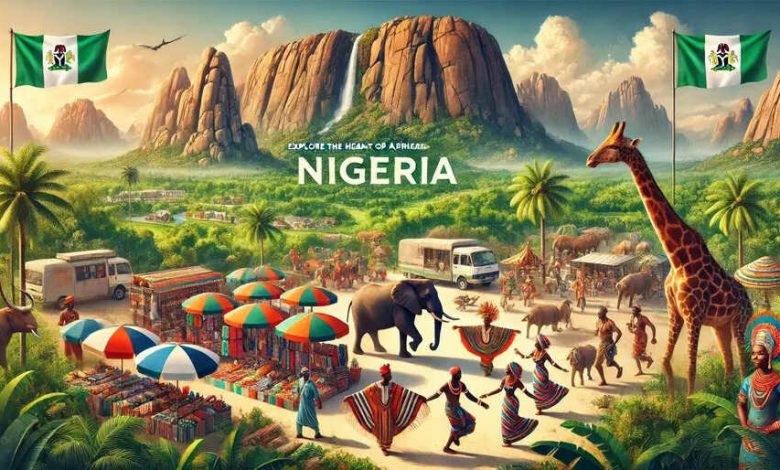Copyright: The Engine Driving Nigeria’s Cultural Tourism Economy
How Legal Safeguards for Arts and Heritage are Unlocking Investment and Empowering Local Creators

Nigeria’s vibrant heritage, from the Yoruba Osun-Osogbo festival to Benin City’s ancient bronzes, powers cultural tourism, but it needs protection. Copyright law in Nigeria acts as a guardian. It explicitly safeguards “expressions of folklore” (songs, dances, stories, art, and crafts) on behalf of the people. For example, traditional masks, textiles, and folk music are protected as “folk art” by law. The law says you cannot copy or broadcast these cultural expressions for profit without permission.
MUSEUMS, LIBRARIES, AND PRESERVATION
Nigeria’s museums and libraries benefit directly. The 2022 Copyright Act added a special exception allowing galleries, libraries, and archives to make and share copies of works for preservation. This means institutions can digitize old manuscripts, recordings, or art and make them available to tourists and students. The law is praised for balancing rights with public access. Nigeria’s new rules explicitly aim to protect culture while also promoting education and research.
FESTIVAL, ARTS, AND LOCAL CRAFTS
Colorful festivals and local art markets show this at work. In Lagos, the Lekki Arts and Crafts Market (also known as Jakande Market) offers masks, paintings, and carvings made by local artisans. These creators own the copyright in their designs – for example, they can sell limited editions or license images of their work.
In Edo State, Benin City’s famous bronze-sculpture tradition inspires modern souvenirs sold to visitors. Major events like Osun-Osogbo (a UNESCO-listed Yoruba shrine) and Kebbi’s Argungu Fishing Festival (with fishing contests and folk music) draw thousands of visitors. At each event, the performers and artisans own copyright in their songs, dances, and art; these communities should be credited or paid when their culture is used.
NOLLYWOOD AND FILM TOURISM
Nigeria’s film industry, Nollywood, is booming; it produces about 1,500 movies a year, second only to India’s Bollywood. https://www.wipo.int/web/wipo-magazine/articles/a-peek-inside-nigerias-film-industry-
Several movie-related attractions now double as tourist destinations. For example, Kunle Afolayan’s KAP Film Village in Oyo State and Tinapa Studios in Calabar offer tours for movie fans. Copyright underpins all this by protecting films and scripts and encouraging investment. Indeed, in 2012, a $8 million investment in iROKOtv (a major Nollywood streaming service) showed that investors trust the industry when films are licensed.
LAWS AND INSTITUTIONS
The Copyright Act 2022 is Nigeria’s main copyright law, aligned with global treaties. It repealed the older 1988 Act and expanded protections for digital and indigenous content.
The Nigerian Copyright Commission (NCC), a government agency headquartered in Abuja, administers and enforces these rules. The NCC conducts raids on pirated goods, mediates disputes, and runs educational programs. Creators can also register their works online with the NCC for added proof of ownership, though copyright automatically exists from creation.
CHECKLISTS FOR CREATORS AND TOURISM ENTREPRENEURS
Know your rights: Your music, designs, and stories are copyrighted the moment you create them. You automatically control the reproduction, performance, or commercial use of your work.
Credit cultural sources: Always mention when folklore or traditional expressions are used. By law, publications must cite the origin of any folk material. This respects the community and adds authenticity for tourists.
Register works (voluntarily): You can notify the Copyright Commission of your creations. A registration certificate serves as evidence of ownership in the event of disputes.
Collaborate and license: If you organize tours, concerts, or festivals, get permission to use creative works. Sign agreements with artists or communities so profits are fairly shared. Nigeria’s law even calls for benefit-sharing when folklore is commercialized.
Use archives and exceptions: Museums and libraries can reproduce material for preservation. Partner with cultural institutions (for example, include recordings or photos from their collections in your tours with permission) to enrich visitor experiences.
Sell authenticity: Promote that your tours or crafts are licensed and authentic. Label artworks as original and tell the story behind them. Informed tourists will value genuine culture and help sustain local artists.
By blending legal protection with creative tourism, Nigeria can showcase its heritage to the world while rewarding the people who keep it alive.




